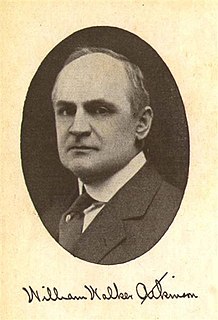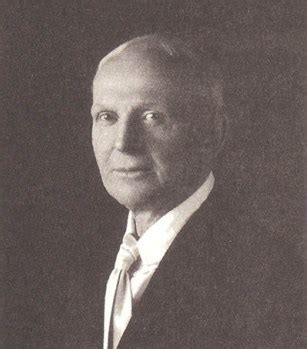A Quote by Frederick Lenz
We are so absorbed in our thoughts that every thought that comes through is a reality. We have to start to detach ourselves from thought and become aware that there are things beyond thought.
Related Quotes
We are sending out thoughts of greater or less intensity all the time, and we are reaping the results of such thoughts. Not only do our thought-waves influence ourselves and others, but they have a drawing power - they attract to us the thoughts of others, things, circumstances, people, 'luck', in accord with the character of the thought uppermost in our minds.
It is remarkable how liberating it feels to be able to see that your thoughts are just thoughts and that they are not 'you' or 'reality.' For instance, if you have the thought that you have to get a certain number of things done today and you don't recognize it as a thought but act as if it's the 'the truth,' then you have created a reality in that moment in which you really believe that those things must all be done today.
In the Orient the ultimate divine mystery is sought beyond all human categories of thought and feeling, beyond names and forms, and absolutely beyond any such concept as of a merciful or wrathful personality, chooser of one people over another, comforter of folk who pray, and destroyer of those who do not. Such anthropomorphic attributions of human sentiments and thoughts to a mystery beyond thought is-from the point of view of Indian thought-a style of religion for children.
By consequence, or train of thoughts, I understand that succession of one thought to another which is called, to distinguish it from discourse in words, mental discourse. When a man thinketh on anything whatsoever, his next thought after is not altogether so casual as it seems to be. Not every thought to every thought succeeds indifferently.
The subconscious mind makes no distinction between constructive and destructive thought impulses. It works with the material we feed it, through our thought impulses. The subconscious mind will translate into reality a thought driven by fear, just as readily as it will translate into reality a thought driven by courage or faith.
Awareness is not the same as thought. It lies beyond thinking, although it makes no use of thinking, honoring it's value and it's power. Awareness is more like a vessel which can hold and contain our thinking, helping us to see and know our thought as thought rather than getting caught up in them as reality.
Their thought is India is a beehive (Madhumakhi Ka Chhata) but our thought is India is our Mother (Maata). Their thought is poverty is a state of mind, our thought is that the poor are manifestation of Almighty. Their thought is to divide and rule, our thought is to integrate and do development. Their soch is Vanshvaad, our soch is Rashtravaad. They say Rajneeti is everything, we say Rashtraneeti is everything. Your thought is to save the chair, our thought is to save the nation.
If you realized how powerful your thoughts are, you would never think a defeatist or negative thought. Since we create through thought, we need to concentrate very strongly on positive thoughts. If you think you can't do something, you can't. But if you think you can, you may be surprised to discover that you can. It is important that our thoughts be constantly for the best that could happen in a situation - for the good things we would like to see happen.
Thought creates things by slicing up reality into small bits that it can easily grasp. Thus when you are think-ing you are thing-ing. Thought does not report things, it distorts reality to create things, and as Bergson noted, "In so doing it allows what is the very essence of the real to escape." Thus to the extent we actually imagine a world of discrete and separate things, conceptions have become perceptions, and we have in this manner populated our universe with nothing but ghosts.
There is an invisible thought-stuff on which the mind acts, making things through the operation of a law not yet fully understood by man. Every thought moves upon this invisible substance in increasing or diminishing degree. When we praise the richness and fullness of God, this thought-stuff is tremendously increased in our mental atmosphere. It reflects into everything that our mind and our hands touch.
































